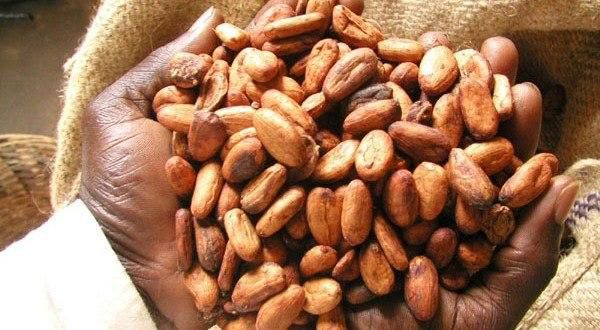Which country pays cocoa farmers best in Africa? Ghana’s position revealed
)
Cocoa remains a cornerstone export and a vital source of income across West and Central Africa, home to the world’s largest cocoa producers. As global prices surge due to supply shortfalls and erratic weather patterns, farmgate prices, the amount paid directly to farmers, reveal major disparities among producing countries.
These differences stem from various factors, including government pricing policies, taxation systems, and intervention strategies.
This article compares the current farmgate cocoa prices in Ghana, Côte d'Ivoire, Nigeria, and Cameroon, with all figures converted into US dollars for consistency.
1. Ghana, $5,040 per metric tonne
)
Ghana leads the region by a significant margin following a sharp price increase in August 2025. The Ghana Cocoa Board (COCOBOD) raised the farmgate price to $5,040 per tonne for the 2025/2026 season, which began on 7 August 2025. This represents a 62.58 percent increase from the previous rate of $3,100 per tonne.
Ghana’s semi-liberalised cocoa market allows a government-led committee to set prices annually. This structure helps shield farmers from volatile market swings. The latest price adjustment has been widely praised as a necessary step to fairly reward farmers amid record-high global cocoa prices earlier this year.
2. Côte d'Ivoire, $3,620 per metric tonne (FCFA 2,200/kg)
)
Côte d’Ivoire, the world’s largest cocoa producer, follows with a farmgate price of 2,200 CFA francs per kilogram, equivalent to approximately $3,620 per tonne. This rate, introduced for the mid-crop season in April 2025, reflects continued efforts to respond to rising global prices.
The government sets prices through the Conseil du Café-Cacao to provide income stability for farmers. Although this price remains lower than Ghana’s, it shows the country’s progress in improving farmer compensation.
3. Cameroon, $2,400 per metric tonne (FCFA 1,500/kg)
)
Cameroon has increased its farmgate price to 1,500 CFA francs per kilogram, or around $2,400 per tonne. This reflects a 25 percent rise from the previous rate of 1,200 CFA francs.
Cameroon’s cocoa sector is more liberalised, with prices often negotiated directly between farmers and traders. However, recent government-backed efforts to enforce a minimum price have helped increase farmer earnings. Persistent challenges such as poor bean quality and weak enforcement of standards still limit access to premium markets.
4. Nigeria, $2,360 per metric tonne (₦3,300,000/MT)

In Nigeria, the cocoa sector is fully liberalised and prices are dictated by market dynamics. As of August 2025, the average farmgate price stands at ₦3.3 million per metric tonne, which converts to approximately $2,360 based on an exchange rate of ₦1,400 to one US dollar.
This marks a substantial improvement from previous years, thanks to strong global demand. Despite this progress, Nigerian farmers continue to face challenges such as price instability, poor rural infrastructure, and limited access to financial services. Stakeholders are increasingly calling for a national pricing and stabilisation framework to protect growers.
Final Thoughts
The wide gap in cocoa farmgate prices across West Africa highlights the significant impact of government policy on farmer livelihoods. Ghana’s decision to raise prices above $5,000 per tonne demonstrates how strategic interventions can ensure that farmers benefit from favourable global market conditions.
With cocoa prices reaching their highest levels in six decades due to reduced output across the region, countries with strong regulatory structures and price guarantees have been better positioned to pass value back to the producers.
As the sector continues to face the effects of climate change, declining soil fertility, and ageing plantations, ensuring fair and competitive farmgate prices will be crucial.
ALSO READ: The 10 most dangerous jobs in the world
It is not only a matter of protecting incomes, but also a vital step in securing the long-term sustainability of cocoa farming. Ghana’s bold pricing model could serve as a blueprint for other producing nations in Africa.
)
,fit(112:112))
)
)
)
)
)